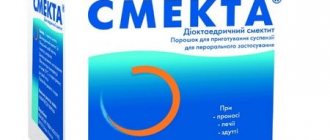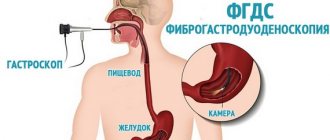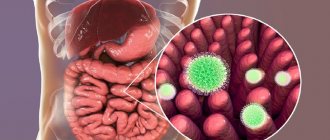A wonderful event has happened in your family - a baby has been born. He is not yet ready for the new world. He has a lot to learn, and so does his digestive system. In an adult, the valve muscles do not allow the contents of the stomach to return to the esophagus, but in a newborn they are still very weak. In addition, the baby does not know how to eat properly. As a result, it happens that the baby spits up like a fountain after feeding.
Whether you breastfeed or formula feed your baby is not so important. The baby sucks and, due to inexperience, swallows air, which then looks for a way out. Moreover, nothing bothers the newborn, he is cheerful and cheerful. But if the mother suddenly panicked, the baby felt it, and now both of them were scared. The worries do not go away, because the mother sees how her child is “torn” from terrible pain, as she thinks. In fact, this is not so.
Don't be afraid of your child, study him the same way he studies you. The baby himself will tell you when something is wrong. If all is well, the newborn is calm, sleeps normally and makes contact easily. And when he is bothered by discomfort after feeding, there is no limit to his whims.
How to distinguish: regurgitation or vomiting in a baby
Regurgitation is a natural process. This happens quite often in the first six months. The newborn spits up a lot. Some babies even gush after feeding. The reasons may be different: the baby swallowed air, overate, the parents did not put the child upright in time after feeding, high mobility. But there are also more complex cases.
There is no reason to worry if:
- the newborn spits up, perhaps even a fountain, but with curdled mother’s milk or a mixture, a curdled mass;
- discharge without a sharp and unpleasant odor;
- mass volume 3-30 ml;
- no weight loss.
- The baby spits up during feeding or immediately after.
You should contact a specialist when the curdled masses have a sharp and unpleasant odor, contain impurities of blood, bile or something else that is not related to food. The discharge is too large, weight loss occurs, or the baby vomits during meals and between feedings.
Vomiting is a complete eruption of the entire contents of the stomach. If this happened once, there is no need to worry. But if a newborn vomits like a fountain during the day, he feels nauseous, and the body temperature is increased or decreased, the baby is pale or restless, lethargic or capricious - these are symptoms of the disease.
The range of causes is quite wide: poisoning, metabolic disorders, intestinal obstruction, central nervous system diseases, respiratory tract infections and many other pathologies.
After eating, hold the baby upright to burp.
How to distinguish fountain regurgitation from vomiting
Vomiting in an infant indicates the appearance of a certain disease, while regurgitation is a harmless reaction of the child’s body. If, when regurgitating, it is enough just to change the position of the child’s body and hold him correctly when feeding, then the causes of vomiting should be identified and subsequently eliminated. When regurgitating, the child can remain completely healthy and active and not lose weight, while after vomiting there is a loss of weight. In addition, when vomiting, the child begins to have convulsions, he protrudes his body, begins to scream and show all signs of anxiety, his sleep is disrupted and a characteristic smell with a sour tinge may appear from his mouth. When regurgitating, nothing like this happens and the child continues to remain cheerful and active.
Why does a baby spit up?
When breastfeeding
- When a child is free-fed, that is, fed on demand. Mom often latches her baby, each time exposing her freshly filled breast. He overeats and as a result burps. Or, conversely, the gap between feedings is too long.
- The glands contain more foremilk, which is watery.
- When a hungry baby is irritated, he grabs the breast incorrectly, swallows air and burps again.
- Another reason is the rapid flow of milk. If at this moment the baby is eating, then he simply does not have time to do it correctly.
When feeding with formula
- The first reason is the same as with breastfeeding - overeating. Although with the mixture the quantity and meals are easy to control.
- The hole in the nipple is not appropriate for your baby's age. Or it was chosen incorrectly.
- When feeding, a one-month-old baby swallows air along with the contents of the bottle. In addition, the mixture may not be suitable.
Consult your pediatrician. Perhaps he will give good recommendations on catering.
When breastfeeding or formula feeding, check your newborn's tummy. If it's soft, good. If it’s hard, help your child get rid of gas. This can be done using a gas tube or light massage.
Causes of spitting up in a child
Each child's digestion process occurs individually. Some people spit up very little, while for others it happens often or after every feeding. Mothers of babies usually begin to get nervous and panic. You shouldn’t do this, it’s better to try to find the causes and ways to eliminate this negative phenomenon.
When artificially feeding newborns, the reasons for regurgitation in a baby after taking formula can be completely different.
Overfeeding
Most often, excess fluid entering the small stomach leads to the eruption of its contents back.
Aerophargy
If, during feeding, the child gets air bubbles with food, which he then regurgitates back with undigested food. Air can get in due to the large hole on the nipple of the bottle, as well as in children who eat quickly and actively.
Mixture
An incorrectly selected mixture can cause increased regurgitation in the child.
Bloating
Increased gas formation and stool disturbances in infants are quite common.
Ecology
Tobacco smoke and other allergens surrounding the baby cause esophageal spasm.
Movement
Active games after eating, laying on the tummy can cause regurgitation in the baby.
Pathologies
Various anomalies of the baby’s nervous and digestive system (narrowing, underdevelopment) are quite rare.
Alarming symptoms during regurgitation
The baby burped like a fountain, and the mother panicked. There is something to worry about here. If the baby spits up frequently and a lot, this leads to dehydration. The result is underweight, poor activity, restlessness and troubled sleep.
All this cannot be attributed to a physiological manifestation and the norm.
If the child is cheerful and cheerful, sleeps well, gains weight, and regurgitation does not cause him discomfort, then there is no reason for concern. But as soon as you notice that something is bothering the baby, he is irritated, and the discharge has become intense with the addition of other phenomena, you should think about it.
Start small. Count how many times a day the newborn burps, how often in a fountain. This will help distinguish a pathological from a physiological condition. Spitting up 4 or 5 times a day can cause quite serious problems. In this case, you need to urgently contact a specialist.
Perinatal encephalopathy
These are certain lesions of the central nervous system that could appear in the baby in utero, during childbirth or in the neonatal period. It is detected by a neonatologist in the first minutes of a baby’s life.
There are many symptoms:
- late newborn cry;
- impairment of motor activity;
- complete absence of the sucking reflex or it is very weak;
- chin trembles;
- superficial sleep;
- muscle dystonia or hypertonicity;
- frequent severe crying;
- profuse regurgitation and much more.
Sometimes a baby can spit up like a fountain.
Hydrocephalus (water of the head)
Accumulation of fluid in the head. It manifests itself as increased intracranial pressure, pain, nausea and even vomiting, blurred vision, mental disorders and abnormal muscle tone.
The baby is restless, often cries a lot, sleeps poorly, and starts walking late.
Other CNS diseases
Severe pregnancy and birth injuries lead to diseases of the central nervous system, which cause frequent and profuse regurgitation. Impaired blood flow to the brain, underdevelopment of the central nervous system and intracranial birth injury.
Damage to the phrenic nerve, convulsions and hyperexcitability can also provoke specific belching in the baby.
The baby often spits up a fountain, usually with undigested food.
Anomalies of the gastrointestinal tract
Pathologies occur in the fetus quite often, both independently and in combination with other anomalies of internal organs.
As a result, regurgitation or vomiting occurs in newborns with the following diseases:
- stenosis, pyloric stenosis;
- pylorospasm;
- diaphragmatic hernia;
- chalazia cardia;
- congenital short esophagus;
- liver diseases.
During the first feedings after birth, the baby regurgitates and loses weight because the food does not have time to be absorbed. In this case, there is no chair.
Infectious diseases
When the body temperature rises, you don’t want to eat, but even if the child eats, the process often ends with vomiting syndrome.
The symptom is observed not only with a common cold, but also with meningitis, encephalitis, sepsis, hepatitis or food poisoning.
If mucus is present in the masses, this indicates that the newborn has intestinal dysbiosis or other gastrointestinal infections.
Hereditary diseases
Phenylketonuria, adrenogenital syndrome, galactosemia also lead to frequent and profuse regurgitation.
The child spits up like a fountain or vomits more often with perinatal encephalopathy (PEP) or birth injuries (SIB). They occur during difficult labor, when the newborn develops short-term or long-term hypoxia.
Determining: vomiting or regurgitation?
To determine whether there are grounds for concern, it is important for parents to establish:
- Is this a natural physiological process of regurgitation?
- Or about vomiting, indicating a particular disease.
Regurgitation occurs without tension or contraction of the abdominal muscles. Food flows out in small quantities without any effort. Regurgitation usually occurs immediately after feeding the baby and/or when the baby's body position changes.
Vomiting is relatively easy to recognize. The release of food masses is abundant, accompanied by spasms and tension of the abdominal muscles. The child cries and shows concern. Vomiting is a complex process. When vomiting, there is an active contraction of the abdominal muscles, as well as the abs and diaphragm. Before the onset of vomiting, pale skin, a feeling of nausea, increased sweating, dizziness, and increased salivation are observed. If vomiting occurs, you should immediately seek medical help.
It is not difficult to determine the difference between spitting up and vomiting in a newborn. Regurgitation occurs immediately after feeding or after a maximum of 60 minutes. A small amount of milk or water is released. Vomiting begins with uncomfortable sensations: nausea, dizziness, which have external manifestations. Vomit is much more abundant and has a brown or yellowish tint, since in addition to food, bile is mixed with it.
It is also easy to determine whether a manifestation is natural or pathological:
- There is no urge to vomit during natural physiological regurgitation.
- The volume of released masses is meager.
- Regurgitation occurs rarely, no more than 1-2 times a day.
- Regurgitation goes away on its own with age, without any treatment.
- The child is developing normally and gaining weight.
Baby spits up breast milk, but no formula
The mother's breast, relatively speaking, is designed for feeding the child. Milk contains essential vitamins and substances. However, some babies are diagnosed with lactose intolerance, so each feeding is accompanied by regurgitation and even vomiting. In this case, a special mixture is selected that does not contain lactose.
In addition, it is important to monitor the amount of food eaten so that the situation does not repeat itself.
Incorrect organization of blood supply
Mistakes when breastfeeding usually lead to bad consequences. The newborn has problems with the gastrointestinal tract, and the woman’s milk burns out. However, there are special recommendations that help cope with this problem:
- Don't jump from breastfeeding to bottle-feeding. Even if you don't seem to have milk, a hungry baby will find it.
- Place the breast into your mouth correctly. The papilla should be completely in the mouth. Insert the areola deeper, but not too much. Do not tilt the baby's head back. Watch your shoulders so that they are not hunched.
- Do not remove your newborn from the breast. Wait until he is satisfied and moves away on his own.
- Do not express milk after feeding, this leads to hyperlactation, and subsequently to mastitis and mastopathy.
- Don't give your baby water. When you think your baby is thirsty, put him to your breast. The milk has everything you need.
- Do not rinse your breasts after each feeding. Favorable microflora is disrupted. And the skin dries out, which leads to cracks.
- Don't set a time, feed your baby on demand.
- There is no need to constantly weigh the child after each meal and then feed him/her. This leads to the habit that the breast is not only food, but also a pacifier for comfort. In addition, the likelihood that you will lose lactation increases.
- If your milk is not bright yellow, this does not mean that it is unhealthy and low-fat. It just contains water, and that's normal.
- Do not overindulge in sweets, condensed milk, nuts and tea with milk; the calorie content of your milk does not depend on this. But you can quickly harm a child’s tummy.
- If your breasts hurt when feeding, don’t tolerate it, just change to another one.
Remember, feeding is a pleasant process that should be enjoyable for both. Try to improve this very important matter.
High fat content of breast milk
Proper nutrition is the key to the health of both the newborn and the mother herself. The composition of breast milk depends on this, and the nurse’s diet should be healthy and very varied. If you don't change your diet immediately after your baby is born, it will be much easier for him to start. Because in his tummy he is already accustomed to your preferences.
As stated in the world organization of associations, the fat content of breast milk directly depends on seasonality and daily periods, and not on the calorie content of the food a woman eats. The baby drinks fatty or “hind” milk when the mother feeds only one breast for more than half an hour. This leads to a fountain of regurgitation or even vomiting of the newborn.
Don’t go too far, there must be moderation in everything. To make milk tasty and, most importantly, nutritious, change your diet. Include foods with plenty of vitamins and minerals, fermented milk, lean meat and fish, legumes and prunes, and coarse rye bread. Also add butter and vegetable fats to the list. But take glucose from jam, compotes and confectionery. Don't forget about vegetables, berries and fruits.
What to do?
If you have not yet been able to find out why your child spits up often and a lot after feeding, but the pediatrician rules out the presence of a disease, try to follow measures that will minimize the risk of food rejection in the stomach:
o After feeding, hold the baby upright for 10-15 minutes to allow air to escape from the stomach.
o Do not overfeed. It is better if the baby eats more often, but in small portions.
o When eating, the baby's head should be higher than his stomach.
o Select the correct bottle opening. If spitting up continues, try offering your baby a bottle with a different attachment.
o Limit the infant's activity for 30 minutes after eating.
o When lying down, make sure your baby turns his head to the side. This position will prevent food from getting into the respiratory tract when regurgitated.
o If your baby burps while lying down, quickly turn him onto his side or stomach.
Reducing regurgitation during breastfeeding
To alleviate the baby’s condition, first of all you need to establish feeding:
- Attach your newborn to the breast correctly.
- Make sure he doesn't overeat. Don't offer the breast every time you feel anxious. Maybe your baby just needs your attention.
- Switch breasts after feeding, not during. The child will receive everything he needs and in the right quantity.
- After each feeding, place the baby upright for 10-15 minutes to allow the air to escape.
- Change the formula if necessary if your baby is not breastfed.
Antireflux baby food
Buy a healthy baby formula that contains a special thickener. Thick consistency reduces the likelihood of regurgitation. You need to feed your baby this product until 6 months - during this period the gastrointestinal tract is better formed.
Then, if the baby is healthy, the regurgitation problems go away.
Despite the natural composition, it is not advisable to transfer a newborn to such mixtures on your own. Don't forget, this is medicine.
How to choose a mixture
First of all, consult a pediatrician or gastroenterologist. Next, rely on quality. The composition of the mixture should be like mother's milk.
Pay attention to age. The manufacturer indicates it on their jars.
- Up to six months - “first formula”. During this period, it is necessary to fill the baby’s body with a large amount of nutrients, but without overloading it.
- Up to a year - “second formula”. Now the baby’s diet is enriched with proteins and carbohydrates. Energy is replenished.
- After a year - the “third formula”. The composition of the mixtures contains vitamins, microelements and other substances necessary for the formation of intestinal microflora and the child’s immunity.
Make sure that the composition contains Omega-3 and 6, prebiotics, probiotics and 5 basic nucleotides. But what should not be there is starch, sucrose, soy.
Choose a mixture that is easy and affordable to buy. Doesn't have to be expensive. You should not take a goat milk product when it is not necessary.
If your baby has a tendency to allergies, consider medicinal mixtures. But strictly after consulting a doctor.
Prevention of regurgitation
- The child's head should lie above the body;
- Before feeding, place the baby on his tummy;
- give a light massage, stroking the baby’s back and stomach;
- Walk with the baby after feeding, hold him upright.
When to see a doctor
According to children's doctor Evgeniy Komarovsky, it is recommended to visit a specialist doctor when vomiting and regurgitation begin after breastfeeding in the second half of life.
Also pay attention to the following signs:
- Weight loss or flat weight curve.
- The baby spits up after each feeding and between them.
- Frequency of urination less than 12 times a day.
- Lack of daily bowel movements.
- Vomiting that occurs repeatedly throughout the day.
- The vomit is profuse, mixed with bile and blood.
- Regurgitation or vomiting combined with fever.
Important! Self-medication leads to the development of dangerous conditions. Consult a doctor!
When you need specialist help
If a mother cannot independently determine the nature of regurgitation, something worries her, then it is worth contacting a specialist.
When the cause is increased gas formation, colic, constipation and dysbiosis, the doctor, after examination, will prescribe additional examinations to identify an accurate diagnosis or prescribe medication to stop the regurgitation process.
Treatment of the phenomenon
If preventive measures do not help, heavy artillery is used:
- changing the position of the child’s body;
- dietary correction using thickeners;
- drug therapy;
- surgical methods of treatment.
You cannot prescribe diets and medications on your own. The consequences may be irreversible.
As you can see, regurgitation syndrome in the first year of a child’s life is a natural process. If you follow the necessary recommendations, this phenomenon and other problems can be avoided or prevented altogether. Listen to your baby and help him explore this world!










